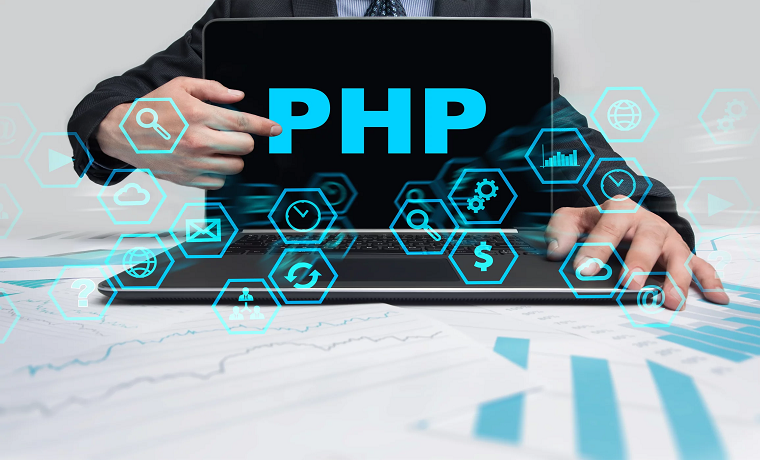Web development pros rely on PHP CMS for dynamic, interactive sites. Mastering the basics sets the stage, but advanced techniques propel your site forward. This post explores optimizing performance, security, frameworks, API integration, multilingual support, AJAX for user experience, and e-commerce with PHP CMS.
Boosting PHP Performance: Faster CMS Responses
Optimizing PHP CMS performance delivers an exceptional user experience. Caching strategies like page, object, or opcode caching reduce server load and database strain, speeding page loads. Streamlining database interactions via efficient query optimization cuts processing times, making your CMS more responsive. Reducing HTTP requests for resources like CSS, JavaScript, and images significantly improves load times. Utilizing content delivery networks (CDNs), minifying, and compressing assets are effective, too. PHP accelerators compile scripts into bytecode for faster execution. Implementing these strategies enhances PHP CMS-driven sites’ responsiveness, creating a fluid, fast experience without redundancy.
Advanced Security Measures for PHP CMS
Securing PHP CMS against cyber threats and data breaches is crucial. Using prepared statements for database queries prevents SQL injection attacks. Employing CSRF tokens safeguards against unauthorized commands from trusted users. Content Security Policies mitigate XSS attacks by specifying allowed dynamic resources, blocking malicious script injections. Two-factor authentication requires two verification factors, reducing unauthorized access risks if one factor is compromised. Regularly scanning with security tools identifies new threats. These advanced measures fortify PHP CMS against sophisticated attacks and vulnerabilities, ensuring a safer web environment.
Good To Read :- Top PHP CMS Platforms For Businesses Website Development
Leveraging PHP Frameworks for CMS Development
PHP frameworks streamline CMS development, offering structured, efficient paths to sophisticated, scalable websites. Framework benefits include accelerated development, enhanced security, built-in features like templating engines, ORM, authentication, and routing. They enforce MVC architecture, promoting modular, reusable, maintainable code. Extensive communities provide comprehensive documentation, forums, plugins, facilitating troubleshooting and functionality expansion. Incorporating frameworks embraces methodologies elevating CMS project quality, security, scalability, enabling robust websites adaptable to evolving digital landscape demands.
Integrating Third-Party APIs with Your PHP CMS
Your PHP CMS becomes super capable when you integrate third-party APIs. This unlocks cool features for your users, like streamlining social posts, accepting payments easily, or embedding maps for better engagement. But, you must keep APIs secure with proper authentication methods. Handle data carefully from these APIs. Manage any failures gracefully with robust error handling. Study the API documentation closely. It gives tips on using the API right and troubleshooting problems. Test thoroughly after implementing these external services into your CMS. This boosts functionality and appeal without compromising performance or the user experience.
Must Read :- How Much Does It Cost To Hire PHP Developer In 2024?
Implementing Multilingual Support in PHP CMS
Make your PHP CMS global by adding multilingual support! Detect visitors’ language preferences automatically. Show them content in their language to connect instantly. Translate content manually or use automated services. Every part of your site becomes accessible to non-English speakers. Add language switchers so users can change languages easily for better navigation and satisfaction. Use PHP internationalization libraries too. Convert dates, times, numbers to formats specific cultures understand. Done right, these techniques broaden your reach massively. Create an inclusive online space welcoming visitors worldwide. Prioritizing multilingual support makes your site super accessible and relevant globally.
Enhancing User Experience with AJAX in PHP CMS
Incorporating AJAX into PHP CMS is key for crafting engaging, seamless web experiences. AJAX allows for asynchronous data exchange between the server and browser. This enables dynamic content updating without full page reloads, improving site speed and performance. The result? A much smoother, interactive user experience. For developers, mastering AJAX calls, JSON data handling, and real-time form validations can transform static pages into vibrant, responsive environments. Techniques like lazy image loading or infinite scrolling further elevate usability, keeping users engaged as content effortlessly loads during navigation. Additionally, AJAX can power efficient search functions, giving users instant feedback or suggestions as they type. By thoughtfully integrating AJAX within PHP CMS platforms, developers boost aesthetic appeal, and functionality, and meet demands for fast, intuitive interactions.
Utilizing PHP CMS for E-commerce Solutions
Leveraging PHP CMS for e-commerce offers a comprehensive toolkit for building seamless, customer-centric online stores. The agility of PHP CMS frameworks allows efficient handling of e-commerce fundamentals like inventory management. Detailed product descriptions and stock levels are dynamically updated, ensuring a real-time shopping experience reflecting current availability. This reduces customer frustration with out-of-stock items. Integrating sophisticated shopping carts provides a smooth browsing-to-purchasing transition, enhancing the user’s journey through intuitive design and secure checkout processes.
Facilitating secure and flexible payments is crucial, which is why payment gateway integration is vital. Developers can implement various payment options with PHP CMS, encompassing credit cards and digital wallets. Transactions remain secure while offering versatility. The adaptability extends to shipping and order management systems. These can be customized for global logistics operations, enabling real-time shipping calculations and tracking within the CMS.
In essence, PHP CMS provides a scalable foundation for e-commerce businesses. It allows customizing and expanding online stores as needs evolve. The robust architecture and modular design seamlessly incorporate additional functionalities like customer reviews, discount codes, and analytics. This drives sales and valuable insights into customer behavior and preferences.
Ready to revolutionize your approach to PHP CMS implementation? Join us and tap into the expertise of the top software product development services in India.
Wrapping up
To conclude, delving into advanced PHP CMS techniques reveals a path to build robust, secure, and engaging websites. Optimizing site performance, fortifying security, harnessing PHP frameworks, and embracing integrations lays a solid foundation for developers seeking excellence. Emphasizing multilingual support and AJAX enhancements underscores the commitment to global reach and seamless user experiences. Exploring e-commerce capabilities through PHP CMS highlights the platform’s adaptability and potential for growth in online retail. As the digital landscape evolves, staying abreast of these sophisticated approaches elevates projects and positions developers to lead in a competitive market. Embracing these advanced strategies crafts exceptional web experiences that resonate with users and support objectives.


